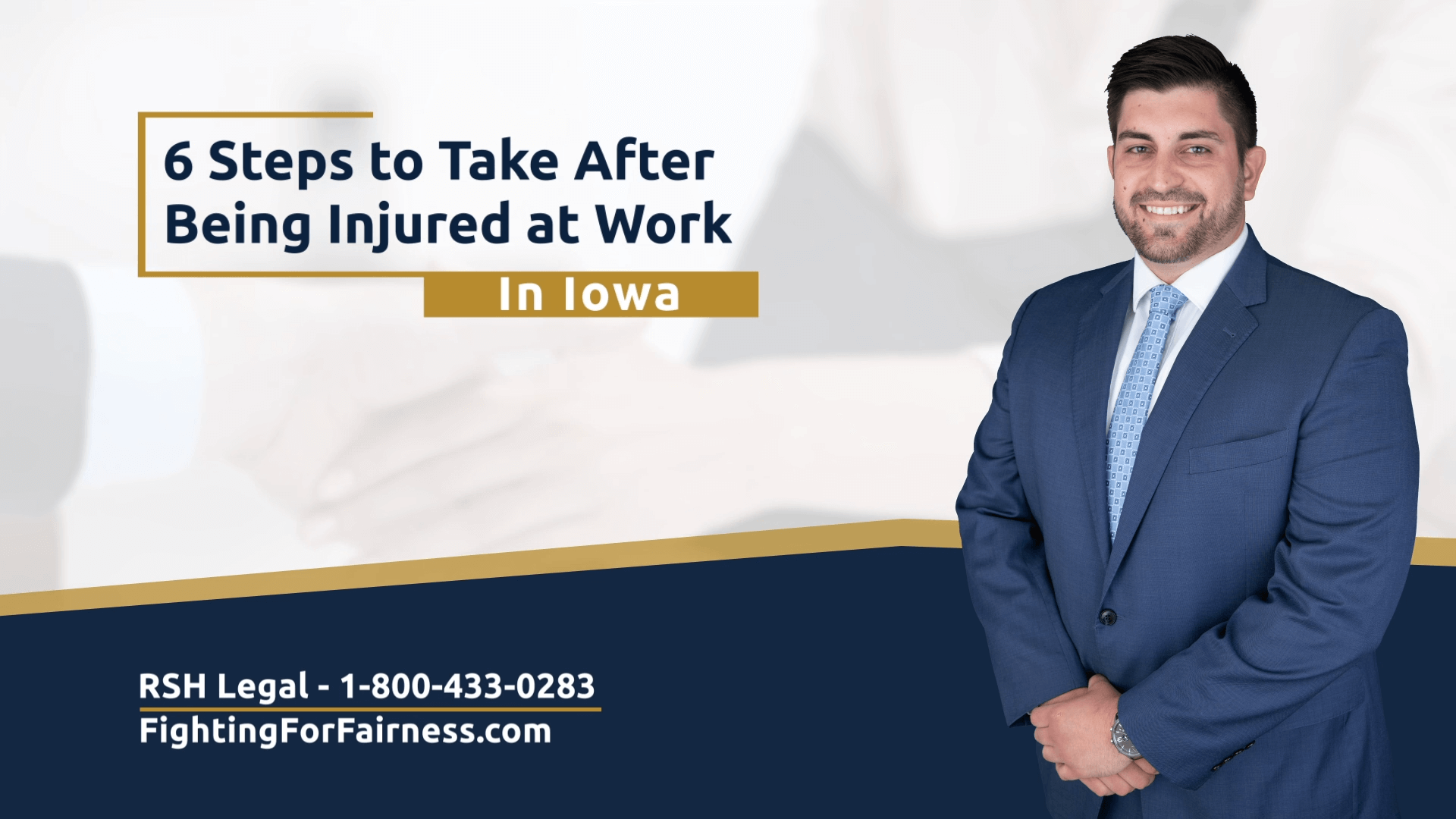Attention! Iowa’s Workers’ Compensation laws changed July 1, 2017. This article’s information may be out of date. Visit our Workers’ Compensation Page for more information.
If you are an employee working in Iowa, most injuries and illnesses caused by your work should be covered by the workers’ compensation system. That means you may qualify for benefits like paid medical treatment, temporary disability benefits or permanent disability benefits. Your entitlement to those benefits, however, is not a sure thing. Unfortunately, there are innocent mistakes an injured worker can make that can put Iowa workers’ compensation benefits in jeopardy.
Here are three common mistakes that can occur early after a work-related injury or illness:
1. Failing to promptly report all work-related injuries or illnesses to your employer.
In Iowa, injured employees have 90 days to report a suspected work-related injury or illness to their employer. Failure to provide this notice can be used to deny an otherwise legitimate Iowa work comp claim. While it is not necessary to provide notice in writing, we recommend that you keep written proof when you tell your employer about an injury suffered on the job. If you call RSH Legal, we can provide you with a form letter we use to place an employer on notice after a work injury.
2. Failing to ask your employer where you should get medical treatment.
In Iowa, employers must pay for reasonable and necessary medical treatment for an employee’s work-related injury or illness. However, there is a catch. If your employer is paying for the medical treatment, it may also select whom you see for that treatment. In other words, if you want your employer to pay your medical bills, your employer can choose your doctor. If you attempt to get medical treatment for a work injury without first seeking your employer’s “authorization”, your employer will likely refuse to pay the bill. Iowa workers’ compensation law requires an injured worker to go through a special process – called filing a petition for alternative medical care – if the injured worker wants his or her employer to pay for treatment from an “unauthorized” provider.
3. Failing to tell all medical providers if you believe your injury or illness has a relationship to your work.
If your work-related injury or illness requires a lot of medical treatment or if it requires you to miss a lot of work, your employer’s workers’ compensation insurance company will look for a way to stop paying you benefits. The first place it will look is in your medical records. If you reported the symptoms of your injury or illness to a doctor without mentioning that it started at work, the insurance company will often try to suggest that you were not hurt on the job. That is why it is important to always explain any suspected connection between your work and your symptoms to every doctor, nurse or therapist who provides you treatment. It is also important to be thorough when you talk to your medical provider about a work-related injury or illness. Forgetting to get an injury or symptom documented in your medical records gives an opening to an insurance company who does not want to pay workers’ comp benefits.
It’s important not to lose hope if you believe you have made one of these mistakes. Make sure to promptly consult with an experienced Iowa workers’ compensation lawyer to see if there is a way to salvage your claim.
To find out other important things that an injured worker should know about the Iowa work comp system, use the form on this page to download the entire Law Guide to Iowa Workers’ Compensation Claims.




